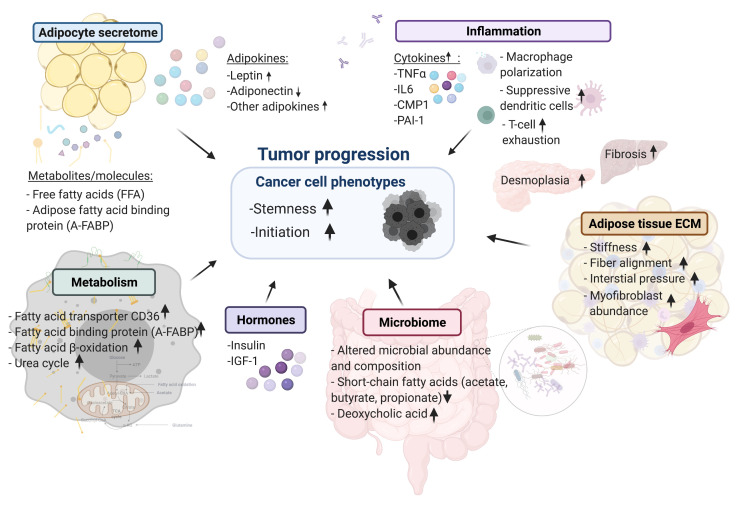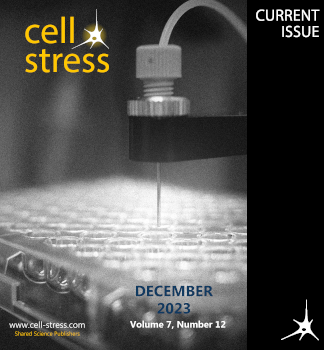癌症和肥胖之间的细胞机制。
IF 4.1
Q2 CELL BIOLOGY
引用次数: 17
摘要
在流行病学上,肥胖与13种癌症有关。局部和全身性肥胖环境是复杂的,可能通过多种途径影响肿瘤。这包括癌细胞表型的调节和肿瘤微环境的组成。对肥胖与癌症之间关系的分子理解,为确定针对肥胖癌症患者的靶向治疗的候选基因带来了希望。在此,我们回顾了连接肥胖和癌症的细胞自主和非细胞自主机制,并提供了用于研究这一问题的小鼠模型系统的概述。本文章由计算机程序翻译,如有差异,请以英文原文为准。

Cellular mechanisms linking cancers to obesity.
Obesity is epidemiologically linked to 13 forms of cancer. The local and systemic obese environment is complex and likely affect tumors through multiple avenues. This includes modulation of cancer cell phenotypes and the composition of the tumor microenvironment. A molecular understanding of how obesity links to cancer holds promise for identifying candidate genes for targeted therapy for obese cancer patient. Herein, we review both the cell-autonomous and non-cell-autonomous mechanisms linking obesity and cancer as well as provide an overview of the mouse model systems applied to study this.
求助全文
通过发布文献求助,成功后即可免费获取论文全文。
去求助
来源期刊

Cell Stress
Biochemistry, Genetics and Molecular Biology-Biochemistry, Genetics and Molecular Biology (miscellaneous)
CiteScore
13.50
自引率
0.00%
发文量
21
审稿时长
15 weeks
期刊介绍:
Cell Stress is an open-access, peer-reviewed journal that is dedicated to publishing highly relevant research in the field of cellular pathology. The journal focuses on advancing our understanding of the molecular, mechanistic, phenotypic, and other critical aspects that underpin cellular dysfunction and disease. It specifically aims to foster cell biology research that is applicable to a range of significant human diseases, including neurodegenerative disorders, myopathies, mitochondriopathies, infectious diseases, cancer, and pathological aging.
The scope of Cell Stress is broad, welcoming submissions that represent a spectrum of research from fundamental to translational and clinical studies. The journal is a valuable resource for scientists, educators, and policymakers worldwide, as well as for any individual with an interest in cellular pathology. It serves as a platform for the dissemination of research findings that are instrumental in the investigation, classification, diagnosis, and therapeutic management of major diseases. By being open-access, Cell Stress ensures that its content is freely available to a global audience, thereby promoting international scientific collaboration and accelerating the exchange of knowledge within the research community.
 求助内容:
求助内容: 应助结果提醒方式:
应助结果提醒方式:


